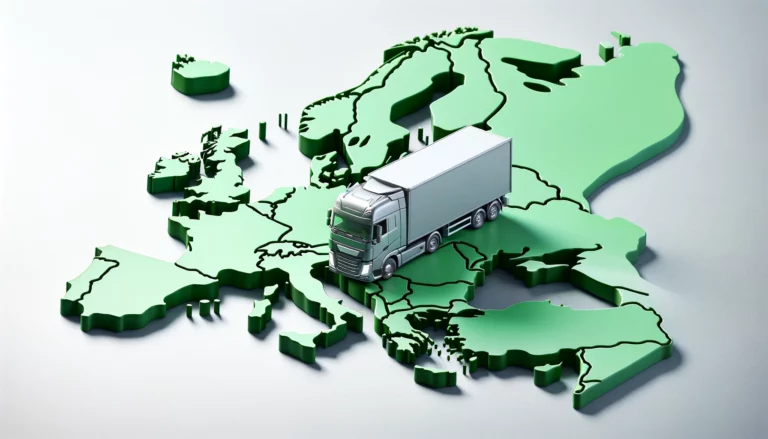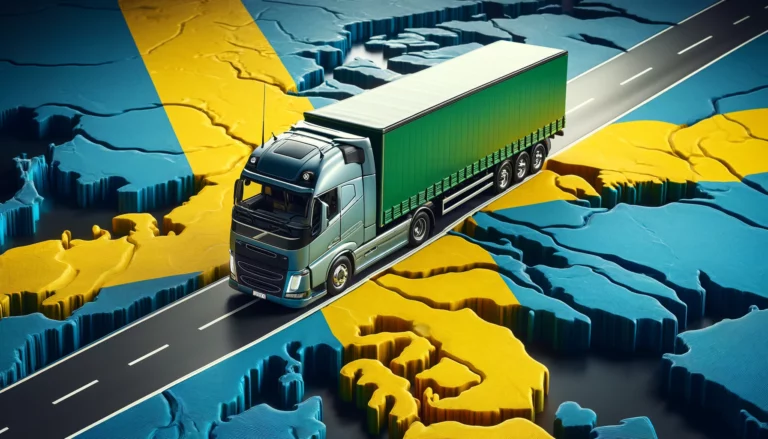Think you know Polish BDO? Think again
Getting a BDO registration number in Poland is only the beginning. The real game is won—or lost—in day-to-day records, waste transfer notes (KPO), statuses, dates, and annual reporting. One wrong click can cement an error in the system and trigger a domino effect across documents, audits, and payments. Below are the most common traps—and how to regain full control.
BDO: non-negotiable duties
If you’re starting BDO registration in Poland, treat the registration number as step one, not the finish line. BDO is a live system. You work in it every day. First, keep electronic waste records (KEO) inside your BDO account. Record what you generate, receive, and hand over. Do it as events happen, not “later”. Otherwise, figures drift and corrections pile up.
Next, handle KPO (Waste Transfer Note) with care. You issue it before the truck moves. The driver carries a PDF or printout that confirms issuance. No proof in the cab means avoidable roadside trouble. Moreover, each party must confirm their part so the card can close cleanly. Your BDO number belongs on business documents. Add it to invoices, receipts, contracts, KPO, KEO, and reports. Hard-code it into templates so staff cannot forget. Therefore, you reduce routine errors to near zero.
Account structure matters. Define roles, business locations, and permissions so tasks flow to the right people. For example, production enters volumes, logistics issues KPO, and the coordinator closes statuses. When everyone knows their lane, the audit trail looks solid. Finally, watch your data. Use reports/exports to spot mismatches early. Compare KPO against KEO, month by month. Then review trends. You will catch issues while they are still easy—and cheap—to fix.
Why it matters: regulators look for consistent data, therefore, gaps are easy to prove during an inspection.
Ask yourself:
• Are you certain you’re not required to register with BDO?
• Does your BDO registration cover all roles you perform?
• Is your BDO account fully configured (locations, permits, users, permissions)?
• Are all EWC codes you generate or handle in Poland included in your registration?
• Do your document templates automatically insert your BDO number?
Answered ‘NO’ to any of the above questions? Then let us secure your BDO, end to end.
KPO: the critical control point
KPO (waste transfer note) is the spine of every waste transport. You create it before dispatch. Each party then confirms its step, and the card closes cleanly at the end. Because it ties the physical load to the data trail, a single mistake can echo through inspections, invoices, and reports.
Start with timing. Issue the KPO early enough for checks. Otherwise, teams rush and miss details. Next, think about the driver. He must carry a PDF or printout that proves the KPO was issued. Without it, roadside trouble is likely. Moreover, the carrier and receiver must match what actually happens on the road. If they don’t, the card returns for fixes and the truck waits.
Data quality comes next. EWC code and mass must reflect the real load. If figures are off, partners reject the card and your KEO no longer reconciles. Soon, month-end turns into firefighting. Finally, mind the closure. Statuses that “hang” for days distort stock, confuse partners, and raise suspicion.
Quick self-check:
• Do you create every KPO before dispatch—no exceptions?
• Do all drivers carry the KPO proof (PDF/print) on every load?
• Do your KPO codes and masses match what leaves the yard?
• Do you close KPO statuses on time, or do cards linger?
If you have any doubts about your KPO management, contact us now.
Annual BDO reports: deadline discipline
The annual BDO report is the snapshot of your year. It must be accurate, complete, and on time. The legal deadline is 15 March for the previous year. Therefore, treat March as a finish line, not a start.
Start early. In January, compare KPO and KEO and your internal stock. Next, assign employees responsible for each step: data pull, review, corrections, and submission. Then keep a short variance log that explains every mismatch. As a result, you build a clean audit trail.
Data must match reality. Codes and masses should reflect actual flows. Moreover, all sites and roles must sit inside the report scope. Finally, lock templates and numbering so the figures do not drift at the last minute.
Why this matters: late or incorrect reports attract fines and extra scrutiny. However, a light monthly close turns March into routine, not a rescue mission.
Make sure you’re doing it right:
• Have you cross-checked KPO (waste transfer note) vs KEO (waste record card) for last year?
• Are all sites and roles included in scope?
• Do you have a calendar and responsible person for each reporting step?
• If the deadline were today, would you be ready?
Don’t go into BDO reporting blind—let us walk you through it.
Popular BDO myths — debunked
Misconceptions about BDO registration in Poland don’t start with bad intent. They start with busy teams and unclear ownership. However, repeated shortcuts create data drift, stalled waste transfer notes, and late reporting. Therefore, we’ve listed the most common BDO myths we encounter in Poland, with clear corrections and next steps. Use this as a quick reset before problems get expensive.
Click on each item to see the explanation
Small companies don’t need BDO
If you hold or manage waste and must keep records, you need it. Depending on what your company does, it may be required to pay annual fees.
KPO can wait until after transport
No. You issue it before the truck moves. Unless you want to pay fines for breaching the Polish waste transport rules.
The driver doesn’t need paperwork
The driver needs proof of KPO (waste transfer note) issuance, either in the form of PDF file or printout.
Only invoices show the BDO number
No, use it on all business documents linked to waste in Poland.
The system will reconcile itself
You’re putting too much faith in the infallibility of the BDO system. It’s still just a digital tool, and on top of that, it’s not automated. You must review, match, and close the reports by yourself.
EWC codes and masses can be ‘close enough’
They must reflect the actual load. Wrong codes invite reclassification, disputes, and rework. Wrong weight raise questions. So you must double-check everything before it leaves your warehouse.







